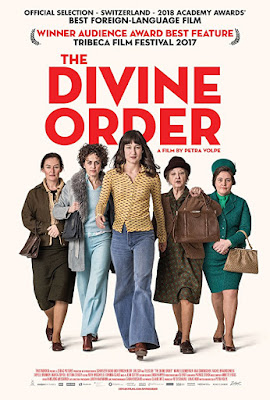Those who possess power keep it till they can't; Edwardian women were treated by law as property of men. In 1906, Finland became the first country to grant full suffrage -- both the right to vote and to run for office. In a number of individual U.S. states, women won the vote in the first decades of the 20th century but it wasn't until 1920 that women in the remaining states got the vote with the passage of the 19th amendment to the Constitution: "The rights of citizens of the United States to vote shall not be denied or abridged by the United States or by any State on account of sex" (below, US women protest lack of suffrage in many states).
Mixed up in the US struggle for suffrage was the fight to abolish slavery and also the peculiar resistance to women speaking in public ('seen but not heard'). Susan B Anthony wrote in 1900, "No advanced step taken by women has been so bitterly contested as that of speaking in public. For nothing which they have attempted, not even to secure suffrage, have they been so abused, condemned, and antagonized." In the UK, World War I diverted the suffragettes, but in 1918, suffrage was granted to women over 30 with property qualifications (21 for men,19 for men who had fought in the war). In 1928, UK women gained suffrage rights equal to men.
Suffragette was the first commercial project to shoot inside the real Houses of Parliament rather than on a constructed set, but the grit and urgency of the plot remove any likeness to the usual dignified British period drama. Much of the action is filmed with hand-held camera making it feel like contemporary news, drawing you into the urgency of our own style women-in-danger thrillers, here depicting the 1912-1913 period of British government-inflicted beatings, force-feedings, and repeated imprisonments (below, prison yard).
It was a violent campaign of terror, arson, and intimidation carried out by movement militants -- members of 'Mrs. Pankhurst's Army', as they called themselves. There were fire bombings, window breakings, attempted and completed suicides, telephone wires cut, damage of museum paintings and sculpture, refusals to pay taxes, assaults on homes of British officials.
Emmeline Pankhurst, after many arrests, had gone into hiding from the police during the time-frame of Suffragette; she makes a brief balcony appearance (followed by a police scuffle), played by our modern-day torch-carrier, Ms Streep, whose recent outspoken declaration against cruelty and tyranny puts her in tune with Pankhurst's persona. (Streep's Iron Lady, gaining her an Academy Award, was scripted by Suffragette's Ms Morgan.)
Fern Riddell, writing for British publication History Today (2015) decries the lack of engagement by historians on the subject of suffragette militancy, which she calls "an evolution of the social revolutionary spirit that had been sweeping Europe since the 18th century and their uses of public masculine language of war combined with violent actions.....". One suffragette militant she describes is Kitty Marion, music hall artist. Marion's autobiography tells the story of her radicalization because of the indignities suffered by women on the stage who were expected to trade sex for roles and be targets of random assault; Kitty Marion needs her own biopic. (Read Riddell's article here.)
Workplace harassment and assault is an undercurrent suffered by the women employees at the laundry workplace of Carey Mulligan's character, Maud Watts, who slowly becomes swept up in suffragette militancy. An apolitical young married mother, Maud, along with teenage workers, is subject to intermittent assault by their slimy boss (Geoff Bell), misery accepted as the price of employment. She has no words to express the indignities, only furtive action to protect the most vulnerable from assault; but it is easy to imagine Maud's suppressed pain being triggered into rage by friends already radicalized.
While the troubles of Mulligan's muted Maud are the focus of the story, several other women give such bright performances that they are as memorable as her poor (composite character) everywoman -- not to her detriment but as evidence of the strength of this entire ensemble of best Brits. Anne-Marie Duff is Maud's friend Violet, already deeply engaged in the movement, Helena Bonham-Carter is Edith, a pharmacist (below) and protest organizer, and Romola Garai is the upper class wife of an MP. Two men merit notice in addition to slime master, Bell -- Brendan Gleeson (Braveheart's Hamish) as a police official with a smidgen of empathy and Ben Whishaw (at right, above) Maud's working class spouse whose humiliation over his wife's growing activism finally leads him to refuse to let her come home after a miserable stint in jail.
The plot builds to the dramatic action of real-life Emily Wilding Davison, who threw herself in front of a horse owned by the king in 1913 to be trampled to death at Epsom race course (shown in archival photo, below).
Director Gavron uses original footage of Davison's stirring funeral procession to conclude the film -- the story unfinished, as are women's rights today, exemplified by the recent March 8 International Women's Rights Day and U.S. walk-out protests (below). Winning the vote was and is not to be the same as winning the influence battle. That war is yet to come.
The above post was written
by our monthly correspondent,
Lee Liberman.

































































